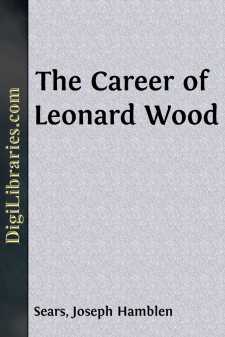Categories
- Antiques & Collectibles 13
- Architecture 36
- Art 48
- Bibles 22
- Biography & Autobiography 815
- Body, Mind & Spirit 144
- Business & Economics 28
- Children's Books 18
- Children's Fiction 14
- Computers 4
- Cooking 94
- Crafts & Hobbies 4
- Drama 346
- Education 58
- Family & Relationships 59
- Fiction 11829
- Games 19
- Gardening 17
- Health & Fitness 34
- History 1378
- House & Home 1
- Humor 147
- Juvenile Fiction 1873
- Juvenile Nonfiction 202
- Language Arts & Disciplines 89
- Law 16
- Literary Collections 686
- Literary Criticism 179
- Mathematics 13
- Medical 41
- Music 40
- Nature 179
- Non-Classifiable 1768
- Performing Arts 7
- Periodicals 1453
- Philosophy 65
- Photography 2
- Poetry 896
- Political Science 203
- Psychology 44
- Reference 154
- Religion 515
- Science 126
- Self-Help 85
- Social Science 82
- Sports & Recreation 34
- Study Aids 3
- Technology & Engineering 59
- Transportation 23
- Travel 463
- True Crime 29
Our website is made possible by displaying online advertisements to our visitors.
Please consider supporting us by disabling your ad blocker.
The Career of Leonard Wood
Description:
Excerpt
I
THE SUBJECT
In these days immediately following the Great War it is well upon beginning anything--even a modest biographical sketch--to consider a few elementals and distinguish them from the changing unessentials, to keep a sound basis of sense and not be led into hysteria, to look carefully again at the beams of our house and not be deceived into thinking that the plaster and the wall paper are the supports of the building.
Let us consider a few of these elementals that apply to the subject in hand as well as to the rest of the universe--elemental truths which do not change, which no Great War can alter in the least, which serve as guides at all times and will help at every doubtful point. They range themselves somewhat as follows:
The human being is entitled to the pursuit of happiness--happiness in the very broadest sense of the word. No one can approach this object {12} unless he is in some way subordinated to something and unless he is responsible for something. No man can get satisfaction out of life unless he is responsible for what he does to some authority higher than himself and unless there is some one or something that looks to him for guidance. Perhaps the existence of religion has much to do with this. Perhaps prayer and all that it means to us belongs in the category of the first of these elementals. Certainly the family is an example of the second.
The family is the unit of civilization--always has been and always will be. The father and the mother have their collective existence, and their children looking to them for guidance, support and growth, both physical and moral. The moment the family begins to exist it becomes a responsibility for its head, and around it centers a large part of the life and happiness of the human being.
In like manner the state is the unit to which we are subordinated.
These constitute two examples of responsibility and subordination which are necessary to the {13} acquirement of civilization, of happiness and of the rewards of life.
Wherever the state has presumed to enter too far into the conduct of the family it has overstepped its bounds and that particular civilization has degenerated. Wherever the family has presumed to give up its subordination to the state and gather unto itself the responsibility through special privilege, that particular state has begun to die.
In modern civilization it is as impossible to conceive of a state without the unit of the family, as it is to consider groups of families without something that we call a state. It is ludicrous to think of a strong and virile nation composed of one hundred million bachelors. We must go back to the feudal days of the middle ages to get a picture of the family without a state.
In other words, a man, to approach happiness, must have his family in support of which it is his privilege to take off his coat and work, and--if fate so decree--live; and he must have his country's flag in honor of which it is his privilege to take off his hat, and--if need be--die....


